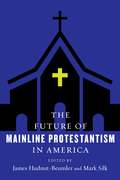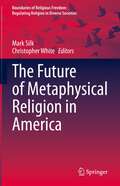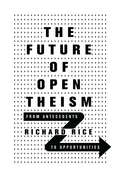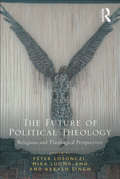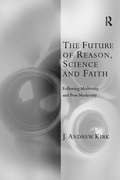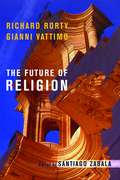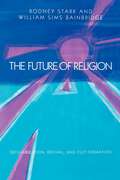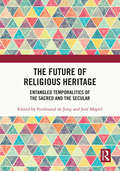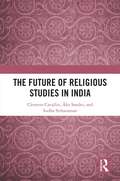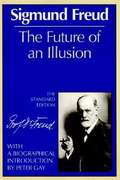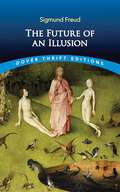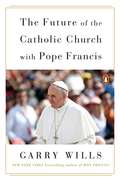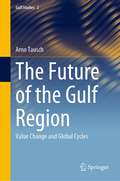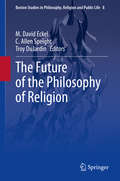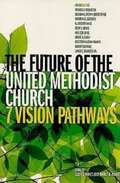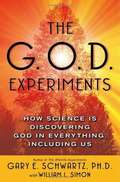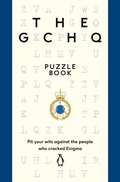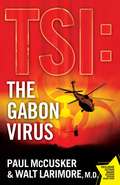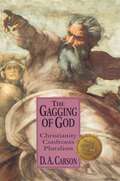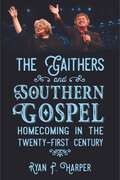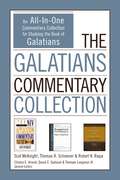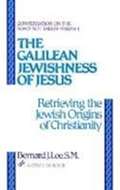- Table View
- List View
The Future of Mainline Protestantism in America (The Future of Religion in America)
by Mark Silk Edited by James Hudnut-BeumlerAs recently as the 1960s, more than half of all American adults belonged to just a handful of mainline Protestant denominations—Presbyterian, UCC, Disciples of Christ, Episcopal, Lutheran, Methodist, and American Baptist. Presidents, congressmen, judges, business leaders, and other members of the elite overwhelmingly came from such backgrounds. But by 2010, fewer than 13 percent of adults belonged to a mainline Protestant church. What does the twenty-first century hold for this once-hegemonic religious group?In this volume, experts in American religious history and the sociology of religion examine the extraordinary decline of mainline Protestantism over the past half century and assess its future. Contributors discuss the demographics of mainline Protestants; their beliefs, practices, and modes of worship; their political views and partisan affiliations; and the social and moral questions that unite and divide Protestant communities. Other chapters examine Protestant institutions, including providers of health care and education; analyze churches’ public voice; and probe what will come from a diminished role relative to other groups in society, especially the ascendant evangelicals. Far from going extinct, the book argues, the mainline Protestant movement will continue to be a vital remnant in an American religious culture torn between the contending forces of secularism and evangelicalism.
The Future of Metaphysical Religion in America (Boundaries of Religious Freedom: Regulating Religion in Diverse Societies)
by Christopher White Mark SilkThis collection of essays by leading scholars explores the present, dynamic state of metaphysical religion in America. It includes chapters that: put survey data on this growing group in context; clarify definitional issues in the study of spirituality in general and metaphysical spirituality in particular; and assess the networks, conferences, rituals, festivals, retreat centers and periodicals recently developed by metaphysicals. The contributors discuss characteristic practices of mental healing and meditation, and show the reach of metaphysical ideas into public spaces and popular media cultures. One particular chapter also addresses the growing controversy over the legitimacy of metaphysical individuals and movements that appropriate elements of Native American and Asian religious beliefs and practices to enrich or sustain their own practice. This rich collection appeals to students, researchers, professionals and the layperson interested in knowing more about the history and more importantly the direction that American metaphysical religion is taking.
The Future of Open Theism: From Antecedents to Opportunities
by Richard RiceOpen theism has reached its adolescence. How did it get here? And where does it go from here?The Openness of God
The Future of Political Theology: Religious and Theological Perspectives
by Péter Losonczi Aakash Singh Mika Luoma-AhoRecent shifts in the contemporary cultural, political, and religious landscape are engendering intensive attention concerning political theology. New trends and traditional ideas equally colour these movements. Given that a medley of recent books and articles have exhaustively treated both the history and the current resurgence of political theology, we now find ourselves faced with the task of reinventing and redefining the future of political theology. This book presents a rich overview of fresh, contemporary theoretical approaches uniquely prioritizing the prospects of the future of political theology, but also making room for significant interventions from philosophy and political theory. Including prominent essays on Judaic, Islamic, Buddhist and Christian perspectives, this book balances elements from post-modern theology with more classical as well as anti-post-modern approaches.
The Future of Reason, Science and Faith: Following Modernity and Post-Modernity (Transcending Boundaries in Philosophy and Theology)
by J. Andrew KirkFocusing on the history of ideas, this book explores important questions concerning knowledge in relation to philosophy, science, ethics and Christian faith. Kirk contributes to the current debate about the intellectual basis and integrity of Western culture, exploring controversial issues concerning the notions of modernity and post-modernity. Repositioning the Christian faith as a valid dialogue partner with contemporary secular movements in philosophy and ethics, Kirk seeks to show that in 'post-Christian' Europe the Christian faith still possesses intellectual resources worthy to be reckoned with. This book's principal argument is that contemporary Western society faces a cultural crisis. It explores what appears to be an historical enigma, namely the question of why Western intellectual endeavours in philosophy and science seem to have abandoned the search for a source of knowledge able to draw together disparate pieces of information provided by different disciplines. Kirk draws conclusions, particularly in the area of ethical decision-making, from this apparent failure and invites readers to consider Christian theism afresh as a means for the renewal of culture and society.
The Future of Religion
by Gianni Vattimo Santiago Zabala Richard RortyThough coming from distinct intellectual traditions, Richard Rorty and Gianni Vattimo are united in their criticism of the metaphysical tradition. The challenges they put forward extend beyond philosophy and entail a reconsideration of the foundations of belief in God and the religious life. They urge that the rejection of metaphysical truth does not necessitate the death of religion. Instead it opens new ways of imagining what it is to be religious. This unique collaboration fuses pragmatism (Rorty) and hermeneutics (Vattimo) and recognizes the limits of both traditional religious belief and modern secularism. Rorty discusses Vattimo's work Belief and argues that the end of metaphysics paves the way for an anti-essentialist religion. Vattimo explores the surprising congruence between Christianity and hermeneutics in light of the dissolution of metaphysical truth. In a concluding dialogue, both philosophers analyze the future of religion together with the political, social, and historical aspects that characterize our contemporary postmodern, postmetaphysical, and post-Christian world.
The Future of Religion: Secularization, Revival and Cult Formation
by Rodney Stark William Sims BainbridgeReligion is alive and well in the modern world, and the social-scientific study of religion is undergoing a renaissance. For much of this century, respected social theorists predicted the death of religion as inevitable consequence of science, education, and modern economics. But they were wrong.Stark and Bainbridge set out to explain the survival of religion. Using information derived from numerous surveys, censuses, historical case studies, and ethnographic field expeditions, they chart the full sweep of contemporary religion from the traditional denominations to the most fervent cults. This wealth of information is located within a coherent theoretical framework that examines religion as a social response to human needs, both the general needs shared by all and the desires specific to those who are denied the economic rewards or prestige enjoyed by the privileged. By explaining the forms taken by religions today, Stark and Bainbridge allow us to understand its persistence in a secular age and its prospects for the future,
The Future of Religion: World Religions And The Future
by Gianni Vattimo Richard RortyThough coming from different and distinct intellectual traditions, Richard Rorty and Gianni Vattimo are united in their criticism of the metaphysical tradition. The challenges they put forward extend beyond philosophy and entail a reconsideration of the foundations of belief in God and the religious life. They urge that the rejection of metaphysical truth does not necessitate the death of religion; instead it opens new ways of imagining what it is to be religious—ways that emphasize charity, solidarity, and irony. This unique collaboration, which includes a dialogue between the two philosophers, is notable not only for its fusion of pragmatism (Rorty) and hermeneutics (Vattimo) but also for its recognition of the limits of both traditional religious belief and modern secularism.In "Anticlericalism and Atheism" Rorty discusses Vattimo's work Belief and argues that the end of metaphysics paves the way for an anti-essentialist religion. Rorty's conception of religion, determined by private motives, is designed to produce the gospel's promise that henceforth God will not consider humanity as a servant but as a friend. In "The Age of Interpretation," Vattimo, who is both a devout Catholic and a frequent critic of the church, explores the surprising congruence between Christianity and hermeneutics in light of the dissolution of metaphysical truth. As in hermeneutics, interpretation is central to Christianity, which introduced the world to the principle of interiority, dissolving the experience of objective reality into "listening to and interpreting messages." The lively dialogue that concludes this volume, moderated and edited by Santiago Zabala, analyzes the future of religion together with the political, social, and historical aspects that characterize our contemporary postmodern, postmetaphysical, and post-Christian world.
The Future of Religious Heritage: Entangled Temporalities of the Sacred and the Secular
by José Mapril Ferdinand De JongThe Future of Religious Heritage examines the resurgence of religious heritage in a secular age and frames such heritage as both legacy from the past and promise for the future. Drawing on case studies from across Europe, the volume addresses the intersection of three well-defined areas of research: secularism, religious heritage, and the question of renewal. Considering the heritagisation of religion and the sacralisation of heritage, contributions to the book consider to what extent the idea of renewal, so pivotal to religious and secular ontologies, is present in heritage formations. Thinking about the temporalities of re-enactment and reconstruction, the volume examines whether heritage practices incorporate religious time into secular practice. Problematising such temporalities of the sacred in our post-secular age, the volume explores how these intersections of religious and secular time in heritage practices inform constructions of the future. The Future of Religious Heritage addresses the paradox of the secularisation of religion and the sacralisation of heritage in a post-secular age. It will appeal to academics and students with an interest in critical heritage studies, religion, and (post)secularism, and will also be of interest to those studying re-enactment, regeneration and renewal.
The Future of Religious Studies in India
by Clemens Cavallin Åke Sander Sudha SitharamanThis book looks at how religious studies is framed and taught in India. It addresses the contradiction between the country’s vibrant religious life and the dearth of comparative and social scientific religious studies programs across Indian universities. The volume: • Studies the efforts by Rabindranath Tagore in Santiniketan and Mohan Malaviya in Varanasi, to introduce and institutionalize religious studies in India; • Discusses the notions of religion and spirituality and situates the failure of the ‘secularization thesis’ in the context of modern India; • Provides concrete suggestions on how to develop religious studies in relation to global citizenship and Indian cultural heritage with the hope of initiating a larger discussion. A unique contribution to the study of religion in society and education, the book will be indispensable to students and researchers of theology, history, philosophy, sociology, secularization, globalization, religious studies, education studies, and South Asian studies.
The Future of an Illusion
by Sigmund Freud James StracheyIn the manner of the eighteenth-century philosopher, Freud argued that religion and science were mortal enemies. Early in the century, he began to think about religion psychoanalytically and to discuss it in his writings. The Future of an Illusion (1927), Freud's best known and most emphatic psychoanalytic exploration of religion, is the culmination of a lifelong pattern of thinking.
The Future of an Illusion (Dover Thrift Editions: Psychology)
by Sigmund FreudIn The Future of an Illusion, Freud’s psychoanalysis of religion is the culmination of a lifelong thought pattern. Freud examines human nature and the role of religion in society, proclaiming that human instincts are destructive to civilization and must be restrained to maintain an orderly society. Religion, viewed as a set of false beliefs based on human desires, manifests as a God-like father figure to a helpless child, whose survival is dependent upon delusional beliefs for independence, security, and incentives for good behavior. Declaring religion and science as mortal enemies, Freud concludes that civilization can only be redeemed through new constructions of existence and ideas motivated by science.
The Future of the Catholic Church with Pope Francis
by Garry WillsThe New York Times bestselling historian takes on a pressing question in modern religion--will Pope Francis embrace change?Pope Francis, the first Jesuit pope and the first from the Americas, offers a challenge to his church. Can he bring about significant change? Should he? Garry Wills, the Pulitzer Prize-winning historian, argues provocatively that, in fact, the history of the church throughout is a history of change. In this brilliant and incisive study, Wills describes the deep and serious changes that have taken place in the church or are in the process of occurring. These include the change from Latin, the growth and withering of the ecclesiastical monarchy, the abandonment of biblical literalism, the assertion and nonassertion of infallibility, and the erosion of church patriarchy. In such developments we see the living church adapting itself to the new historical circumstances. As Wills contends, it is only by examining the history of the church that we can understand Pope Francis's and the church's challenges.From the Hardcover edition.
The Future of the Catholic Church with Pope Francis
by Garry WillsThe New York Times bestselling historian takes on a pressing question in modern religion—will Pope Francis embrace change?Pope Francis, the first Jesuit pope and the first from the Americas, offers a challenge to his church. Can he bring about significant change? Should he? Garry Wills, the Pulitzer Prize-winning historian, argues provocatively that, in fact, the history of the church throughout is a history of change. In this brilliant and incisive study, Wills describes the deep and serious changes that have taken place in the church or are in the process of occurring. These include the change from Latin, the growth and withering of the ecclesiastical monarchy, the abandonment of biblical literalism, the assertion and nonassertion of infallibility, and the erosion of church patriarchy. In such developments we see the living church adapting itself to the new historical circumstances. As Wills contends, it is only by examining the history of the church that we can understand Pope Francis's and the church's challenges.From the Hardcover edition.
The Future of the Gulf Region: Value Change and Global Cycles (Gulf Studies #2)
by Arno TauschThis book studies values and attitudes in the Gulf region. In light of global power shifts, the threatening collapse of internal security in the West, and uncertainty about the current leadership vacuum in world society, this book explores a future leading role of the Gulf countries in such institutions as the G-20 and the OECD. Based on rigorous analysis of macro-level data and opinion surveys with relevance for the Gulf region, it analyzes the global macro-factors shaping the Gulf's future at a time of the global COVID-19 crisis and depression and rising global tensions. Starting with an empirical time series analysis of the long cycles of global politics and economics, it highlights the implications for the Gulf region. Offering a multivariate analysis of civil society values in the Gulf, the author analyzes value changes and attitudes on antisemitism, political Islam, internal security, democracy, and other issues of Arab politics. The partially optimistic conclusions of the study testify to the underestimated and incipient maturity of the Gulf’s civil society and strongly suggest that the Gulf's future is rather with the free societies of the West and not with a Neo-Ottoman Empire in whatever form."Exceptional in scope and right up-to-the-minute in coverage"Brian M Pollins, Associate, Professor Emeritus, The Ohio State University."An outstanding and topical book by an astute scholar of the MENA region"Professor Hussein Solomon, Academic Head of Department, Political Studies and Governance, University of the Free State, South Africa."The most comprehensive and insightful study on the subject to date"Manfred B. Steger, Professor of Sociology, University of Hawai'i at Manoa and Global Professorial Fellow, Western Sydney University.
The Future of the Philosophy of Religion (Boston Studies in Philosophy, Religion and Public Life #8)
by C. Allen Speight M. David Eckel Troy DuJardinThis collection of essays on the philosophy of religion and its future brings together accomplished thinkers across several related fields, from comparative philosophy to analytic and continental philosophy of religion and beyond. Contributing authors address pressing questions including: Where does philosophy stand in relation to religion and the study of religion in the 21st century? How ought the philosophy of religion to interact with religious studies and theology to make for fruitful interdisciplinary engagement? And what does philosophy uniquely have to offer to the broad discourse on religion in the modern world? Through exploring these questions and more, the authors’ goal is not that of meeting the philosophical future, but of forging it. Readers will enter a vivid conversation through engaging essays which demonstrate the importance of disciplinary openness and show that we do not need to sacrifice depth in order to achieve breadth. Modernity and postmodernity come together in a constantly evolving discussion that moves the philosophy of religion forward, while keeping an eye toward the experience accumulated in past centuries. This book will interest students of philosophy, theology, religious studies, and other fields that wonder about the place of philosophy and religion in today’s world. It also has much to offer advanced scholars in these fields, through its breadth and forward thinking.
The Future of the United Methodist Church: 7 Vision Pathways
by Scott J. Jones Bruce R. OughThis book offers a renewed vision and practical steps for United Methodists to work together in mission and ministry. These bishops of The United Methodist Church urge congregations to stand together, under God’s grace, to lead others to vibrant faith, steadfast hope, and joyful living. The authors call for a new partnership with God to bring God’s reign to fruition for all God’s people. With concrete guidance about how to create and transform disciples, readers are invited to travel the path that leads to the abundant living that Jesus talked about. This book will also inspire and motivate congregations to work together to be a vibrant presence in their neighborhoods and communities. The Seven Pathways were created by the United Methodist bishops and presented at the 2008 General Conference as a vision statement for the Church. Contributors include: Bishops Sharon Brown Christopher, Gregory Vaughn Palmer, G. Lindsey Davis, Robert Schnase, Scott J. Jones, Hee-Soo Jung, E. James Swanson Sr., Minerva G. Carcano, Thomas J. Bickerton, and Bruce R. Ough. The seven pathways are: Planting New Congregations, Transforming Existing Congregations, Teaching the United Methodist Way, Strengthing Clergy and Lay Leadership, Children and Poverty, Expanding Racial/Ethnic Ministries, and Eliminating Poverty by Stamping out Disease.
The G.O.D. Experiments: How Science Is Discovering God in Everything, Including Us
by William L. Simon Gary E. SchwartzDOES GOD EXIST ONLY IN OUR HEARTS? According to highly esteemed scientist Gary E. Schwartz, Ph. D. , there is compelling scientific evidence that we no longer have to accept God on faith alone. Through a multidisciplinary approach, Harvard University-educated Dr. Schwartz blends psychology, quantum physics, and mathematics to examine the science of spirit. Faith and science are not mutually exclusive, and a better understanding of their relationship can lead us to recognize how God operates in everything. Trained in the scientific method as an "open-minded skeptic," Dr. Schwartz was taught how to raise questions, turn them into hypotheses, and design experiments to test them. He was not trained to consider the nature of God. And yet, his scientific research led him directly to the discovery of God's existence in intelligent evolution and everyday life. Scientifically rigorous and spiritually reassuring, this eye-opening book is a wake-up call for anyone who wonders about life's true meaning and who longs to believe in the existence of a universal intelligence.
The GCC Banking Sector: Topography and Analysis
by Abdullah Al-Hassan May Khamis Nada OulidiA report from the International Monetary Fund.
The GCHQ Puzzle Book: Perfect for anyone who likes a good headscratcher
by GCHQSharpen your mind to beat the smartest brains in Britain with the original official GCHQ puzzle bookWould GCHQ recruit you? Pit your wits against the people who cracked Enigma in the official puzzle book from Britain's top secret intelligence and security organisationOver the years, their codebreakers have helped keep our country safe, from the Bletchley Park breakthroughs of WWII to the modern-day threat of cyber attack. So it comes as no surprise that, even in their time off, the staff at GCHQ love a good puzzle.Whether they're recruiting new staff or challenging each other to the toughest Christmas quizzes and treasure hunts imaginable, puzzles are at the heart of what GCHQ does. Now they're opening up their archives of decades' worth of codes, puzzles and challenges for everyone to try.In this book you will find:- Tips on how to get into the mindset of a codebreaker- Puzzles ranging in difficulty from easy to brain-bending- A competition section where we search for Britain's smartest puzzlerWith hundreds of stimulating puzzles, The GCHQ Puzzle Book is the perfect companion and will keep you occupied as you attempt to beat the smartest brains in Britain.GOOD LUCK!'Fiendish . . . as frustrating, divisive and annoying as it is deeply fulfilling' Guardian'Ideal for the crossword enthusiast' Daily TelegraphLooking for more ways to test yourself? The GCHQ Puzzle Book 2, a new collection of head-scratching, mind-boggling and brain-bending puzzles is out now!
The Gabon Virus: A Novel (TSI #1)
by Walt Larimore Paul McCuskerIn the face of a new plague that threatens the world, our forensic heroes investigate the past to save the future— studying evidence from when the Black plague decimated a small english village eyam, pronounced eem, during the seventeenth-century.After the greedy founders of a scientific research laboratory intentionally infect subjects with a deadly plague in order to develop a lucrative vaccine, the plague spreads beyond the lab’s control. A top-secret government team of scientists covertly begins to research a solution. They turn their attention to the seventeenth-century—the only other time when a widespread plague ravaged the world—for clues on how to prevent this disaster from happening again. In particular, the scientists are interested in how eighty people from the village of Eyam were able to remain virtually untouched by the plague at the height of the Black Death’s deadly reign over Europe. But trouble is afoot in Eyam—grave robberies, grisly murders, and the bizarre reappearance of the Blue Monk—a legendary, spectral figure from the time of the plague. Can he be real? And who’s trying to stop the team from discovering the truth about Eyam? Distinguished authors Paul McCusker and Walt Larimore, M.D. have collaborated to deliver this sweeping, fast-paced novel that spans the globe and transcends time. Sure to leave readers wanting more, The Eyam Factor is a riveting introduction to the authors’ new Time Scene Investigators series.
The Gagging of God: Christianity Confronts Pluralism
by D. A. CarsonThe Gold Medallion Award-winning book that presents a persuasive case for Christ as the only way to God. Is Jesus the only way to God? This clear, critically-acclaimed, scholarly response to that question affirms the deep need for the Gospel’s exclusive message in today’s increasingly pluralistic global community. The Gagging of God offers an in-depth look at the big picture, shows how the many ramifications of pluralism are all parts of a whole, and then provides a systematic Christian response.
The Gaithers and Southern Gospel: Homecoming in the Twenty-First Century (American Made Music Series)
by Ryan P. HarperIn The Gaithers and Southern Gospel, Ryan P. Harper examines songwriters Bill and Gloria Gaither's Homecoming video and concert series--a gospel music franchise that, since its beginning in 1991, has outperformed all Christian and much secular popular music on the American music market.The Homecomings represent "southern gospel." Typically that means a musical style popular among white evangelical Christians in the American South and Midwest, and it sometimes overlaps in style, theme, and audience with country music. The Homecomings' nostalgic orientation--their celebration of "traditional" kinds of American Christian life--harmonize well with southern gospel music, past and present. But amidst the backward gazes, the Homecomings also portend and manifest change. The Gaithers' deliberate racial integration of their stages, their careful articulation of a relatively inclusive evangelical theology, and their experiments with an array of musical forms demonstrate that the Homecoming is neither simplistically nostalgic, nor solely "southern."Harper reveals how the Gaithers negotiate a tension between traditional and changing community norms as they seek simultaneously to maintain and expand their audience as well as to initiate and respond to shifts within their fan base. Pulling from his field work at Homecoming concerts, behind the scenes with the Gaithers, and with numerous Homecoming fans, Harper reveals the Homecoming world to be a dynamic, complicated constellation in the formation of American religious identity.
The Galatians Commentary Collection: An All-In-One Commentary Collection for Studying the Book of Galatians
by Tremper Longman III David E. Garland Scot Mcknight Thomas R. Schreiner Clinton E. Arnold Robert K. RapaThis all-in-one commentary bundle on the book of Galatians features volumes from the NIV Application Commentary Series, Zondervan Exegetical Commentary Series, and Expositor's Bible Commentary Series. Each volume provides new and unique insights from leading biblical scholars Scot McKnight, Thomas Schreiner, and Robert Rapa. The unique features from each volume along with the diverse insights provided by the authors gives you all the tools you need to study and master the book of Galatians.
The Galilean Jewishness of Jesus: Retrieving the Jewish Origins of Christianity
by Bernard J. LeeIn The Galilean Jewishness of Jesus, the first of a three-volume series, author Bernard J. Lee, S.M., reconstructs the historical, cultural and religious fabric of Galilee in the time of Jesus and examines four kinds of Jews who would have been familiar to the religious landscape of Jesus' Galilee: teacher, Pharisee, wandering charismatic, eschatological prophet. Author Lee shows how Christians today can interpret the meaning of Jesus in a way that is both adequate to their religious experience and yet does not violate Jesus' Jewishness.
